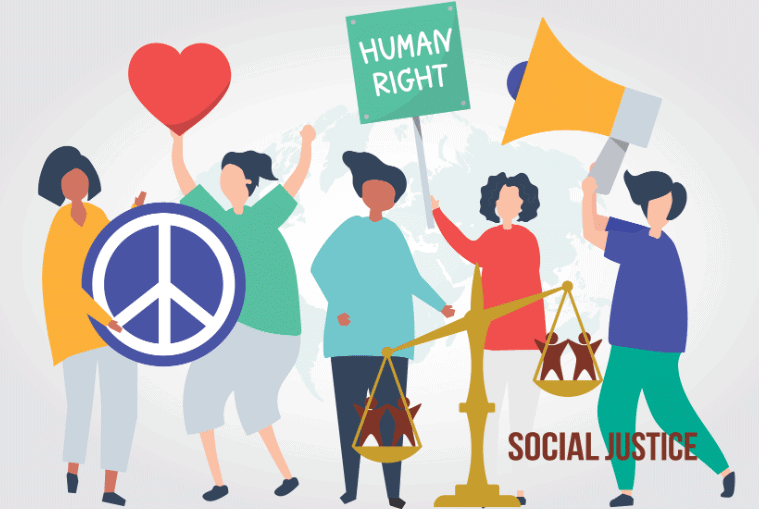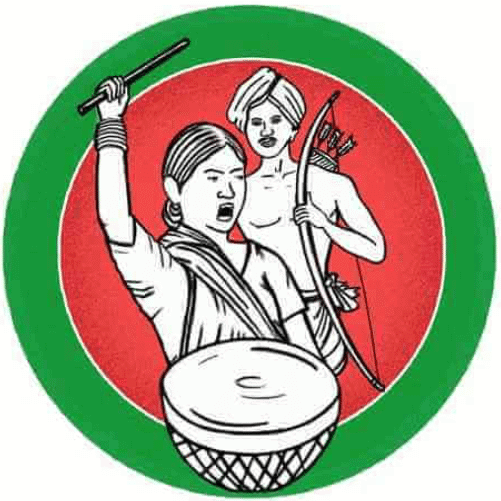Notes: Social Justice and the Marginalised | Social Studies & Pedagogy Paper 2 for CTET & TET Exams - CTET & State TET PDF Download
Social Justice
Social justice refers to the special provisions in the Constitution aimed at safeguarding the rights and welfare of weaker and vulnerable sections of society. It is a transformative concept that upholds the rule of law and ensures dignity in life. A welfare state plays a crucial role in extending benefits and protecting the rights of these sections. Socio-economic justice aims to eliminate inequalities and provide equal opportunities at all levels.
Marginalisation
Marginalisation is the process of pushing a group or class of people to the periphery, reducing their significance and relegating them to a secondary position. In India, marginalised communities include Scheduled Castes (SCs), Scheduled Tribes (STs), Other Backward Classes (OBCs), religious minorities, women, and children.
Minorities and Marginalisation
The Indian Constitution safeguards the rights of religious and linguistic minorities as part of Fundamental Rights. Since the dominant culture often shapes societal and governmental expressions, these safeguards are essential to maintaining India's cultural diversity and ensuring equality and justice. If minority rights are violated, individuals can seek legal remedies through the courts.
Muslims and Marginalisation
As per the 2011 Census, Muslims comprise 14.23% of India's population and are considered a marginalised community due to socio-economic disadvantages. Recognizing their lag in development indicators, the government established the Sachar Committee in 2005 under Justice Rajendra Sachar to assess their social, economic, and educational status.
Scheduled Castes and Scheduled Tribes
The Scheduled Castes and Scheduled Tribes (Prevention of Atrocities) Act, 1989, was enacted to address the humiliation and oppression faced by Dalits and Adivasis. It categorizes offenses into different levels, including:
Acts of humiliation, such as forcing SC/ST individuals to consume inedible substances or parading them in a degrading manner.
Crimes that deprive them of resources or subject them to forced labor, such as unlawful occupation of their land.
Adivasi Rights and the 1989 Act
The 1989 Act is significant as it affirms Adivasis' rights to their traditional lands. Many Adivasis resist displacement, yet they are often forcibly removed. Activists like CK Janu have highlighted that state governments contribute to this injustice by allowing non-tribal encroachment and corporate exploitation of tribal land, displacing indigenous communities in the name of forest conservation.
Women and Marginalisation
- Women have historically been perceived as subordinate to men within societal structures, often facing discrimination in various aspects of life. This bias originates within the family and extends into broader social institutions, despite constitutional guarantees of gender equality.
- Decisions about a woman's education, lifestyle, and personal choices are frequently made by male family members. However, some women have asserted their independence and embraced a life of autonomy, though widespread change remains slow and inconsistent.
- Women have played a crucial role in agriculture and allied fields but have largely been excluded from ownership of economic resources such as land and technology. Cultural norms, traditions, and societal expectations further contribute to their vulnerable status.
- Many government policies and schemes designed for women's welfare fail to address deep-rooted family biases and social constraints.
- Although women are legally entitled to property rights, societal conditioning often leads them to relinquish their inheritance in favor of male relatives.
- To address this issue, social policies must be reformed to ensure women's economic empowerment. The government must frame and implement policies that not only guarantee income security but also grant women control over assets and financial resources.
- The objective is not to disadvantage men but to establish a fair and equal system where both genders have equal rights and responsibilities.
- A well-structured social policy, grounded in an in-depth understanding of societal challenges, can serve as a foundation for women's empowerment.
- The government must create an inclusive environment where men and women are provided equal opportunities, free from discrimination and biases.
- This approach should focus on integration and diversity rather than enforcing uniformity in societal roles.
Social Justice and the Need for Inclusive Society
Marginalisation matters because all human beings are born equal, and the fundamental principle of equality is essential for personal dignity and societal harmony. If marginalisation persists, it threatens individuals' identities and overall well-being. Society must work towards an inclusive and optimistic future where everyone can coexist without the burdens of exclusion or discrimination.
Addressing marginalisation requires acknowledging its impact across social categories, including religion, caste, class, and family structures. A just society should aim to transcend these divisions and promote humanity as the foundation of social inclusion. Social justice must be actively pursued to ensure that all individuals, regardless of background, receive equal opportunities and rights.
|
75 videos|311 docs|77 tests
|
FAQs on Notes: Social Justice and the Marginalised - Social Studies & Pedagogy Paper 2 for CTET & TET Exams - CTET & State TET
| 1. What is social justice and why is it important for an inclusive society? |  |
| 2. Who are considered marginalized groups in society? |  |
| 3. How can education contribute to social justice and inclusivity? |  |
| 4. What are some examples of social justice initiatives aimed at supporting marginalized communities? |  |
| 5. How can individuals contribute to social justice efforts in their communities? |  |





















